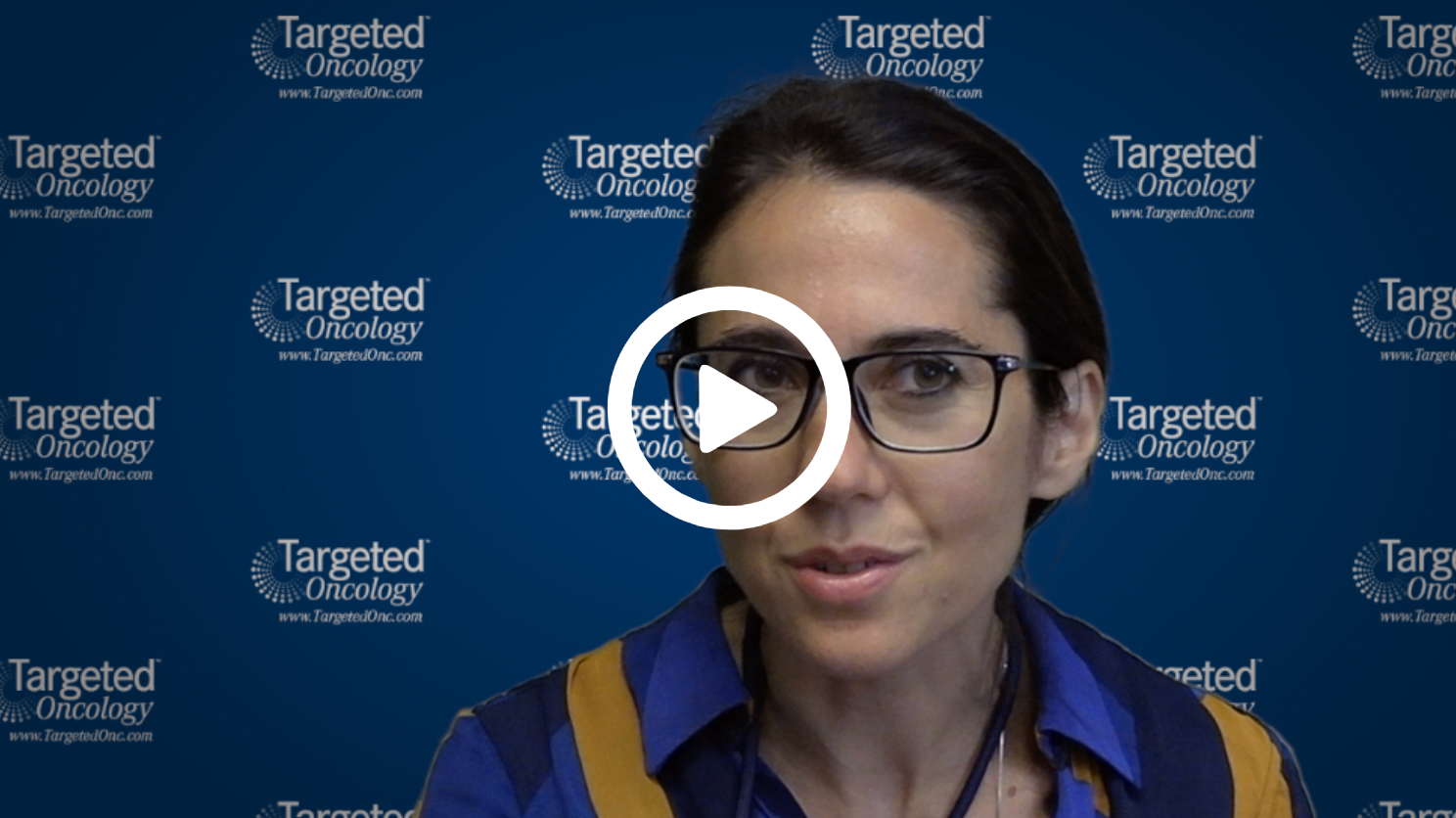Long-Term SOLO-1 Data Solidify Use of Maintenance Olaparib in BRCA1/2+ Ovarian Cancer
In an interview with Targeted Oncology, William H. Bradley, MD, discussed the results of the SOLO-1 trial of olaparib as a maintenance therapy for patients with ovarian cancer with a BRCA1/2 mutation, and other developments in the ovarian cancer field.
William Bradley, MD

The use of olaparib (Lynparza) as a maintenance therapy for newly diagnosed advanced ovarian cancer and a BRCA1/2 mutationhas been shown to prolong progression-free survival (PFS) compared with a placebo, according to the 5-year follow-up results of the SOLO-1 trial.
Data from SOLO-1 were presented during the Society of Gynecologic Oncology 2021 Virtual Annual Meeting on Women’s Cancer. The randomized phase 3 trial enrolled roughly 450 patients. The primary outcome was PFS, and the secondary outcomes included efficacy, change from baseline in health-related quality of life, efficacy in patients following first line platinum-based chemotherapy by assessment of time to first subsequent therapy or death.
Patients were randomized to receive 300 mg of olaparib twice daily for 3 years or until disease progression. Patients with evidence of stable disease or those who have progressed were able to continue treatment for 2 more additional years if it was deemed in their best interest. Patients in the comparator arm received a placebo in place of olaparib twice daily.
The median treatment duration with olaparib was 24.6 months and 13.9 months with placebo. Of the patients who received olaparib, 74% remained free from disease progression and death compared to the 35% with the placebo. The median PFS for the olaparib arm was 56.0 months and 13.8 months for those in the placebo arm.
In an interview with Targeted Oncology, William H. Bradley, MD, a gynecology oncologist at the Froedtert & Medical College of Wisconsin, discussed the results of the SOLO-1 trial of olaparib as a maintenance therapy for patients with ovarian cancer with a BRCA1/2 mutation, and other developments in the ovarian cancer field.
TARGETED ONCOLOGY: Can you give an overview of what you presented at this year's meeting?
BRADLEY: I was fortunate enough to be able to present the five-year follow-up for the SOLO-1 trial (NCT01844986), which was a study for women with serous ovarian cancer, and a BRCA 1/2 germline or somatic mutation. Patients on this trial were randomized 3:1 to receive olaparib, which is a PARP inhibitor, versus placebo. Initially, the SOLO-1 data presented in 2018 demonstrated a significant improvement in PFS for the patients who received the study treatment. Two-year maintenance olaparib led to a hazard ratio of 0.30 and significant improvement in PFS.
What were the updated follow-up results to this study?
This was a 3-year add on to [the prior follow-up], so it was a 5-year total follow up with these patients. The patients stopped receiving the study drug at 2 years, and then went on to further observation or treatment depending upon what their cancer dictated. What we saw significantly and importantly, is that the response rate for the patients who received olaparib was durable. At 5 years, the difference in PFS still persisted between those patients who had received the study drug and the patients who had received placebo initially. This really solidifies the utilization of this maintenance therapy strategy for patients with BRCA mutations in ovarian cancer.
I think some of the other interesting things that we saw on the long-term follow-up of SOLO-1 was that the patients who received the study drug did not have significant toxicities, persisting past the treatment period. Specifically, I'm thinking of things like acute myeloid leukemia and myelodysplastic syndrome. These were the kind of blood problems that we saw in patients who received this medication, that did not show itself to be much worse for those patients down the road, which is really encouraging to have a good safety signal for these patients.
Any other advice on managing the toxicities associated with this agent?
One of the discussions that was held was the duration of therapy, and that's a really interesting point. On this trial patients received the drug for 2 years. There were some patients who were allowed to continue if they had a measurable disease after that 2-year period and the physician that was treating them thought that was in their benefit, but this is a small number. I think that if you're going to use this as a standard of care, there seems to be that 2-year window that is aa very reasonable one that the patient will receive a benefit. There's no reason to continue it beyond that point unless there's something specific for that individual patient.
What are the next steps now that this research has shown promise?
The long-term survival follow-up will continue. We're very interested in patients being cured of this cancer at a rate that's much higher than we've traditionally seen. We're very optimistic. That's a secondary outcome that hopefully will be demonstrated in the future.
What studies do you think are showing the most promise in this space right now?
So, there's a lot of excellent information that came out of the meeting. It was a pleasure to be able to attend it. I’m very interested in the improvement in survival in patients with endometrial cancer, using the combination of pembrolizumab (Keytruda) and lenvatinib (Lenvima). That data were really interesting to see. There's also been some promising early data for distribution of health care and how we can improve care in various communities that were historically underserved.
I've been fortunate to participate in a number of studies for women with cancer. I gave a trial in progress presentation for the EndoBARR trial (NCT03694262), which is a trial for women with endometrial cancer that is recurrent or persistent. These women received a combination therapy of bevacizumab (Avastin), atezolizumab (Tecentriq) and another PARP inhibitor, which in this case was rucaparib (Rubraca). We're still accruing patients, and the analysis is ongoing. We're excited to see what happens with this study.
Avutometinib/Defactinib Leads to Positive Response, Survival Data in Ovarian Cancer
October 18th 2024The completion of a new drug application for the combination of avutometinib and defactinib in KRAS-mutant ovarian cancer is expected to be finalized with the FDA by the end of the month.
Read More






